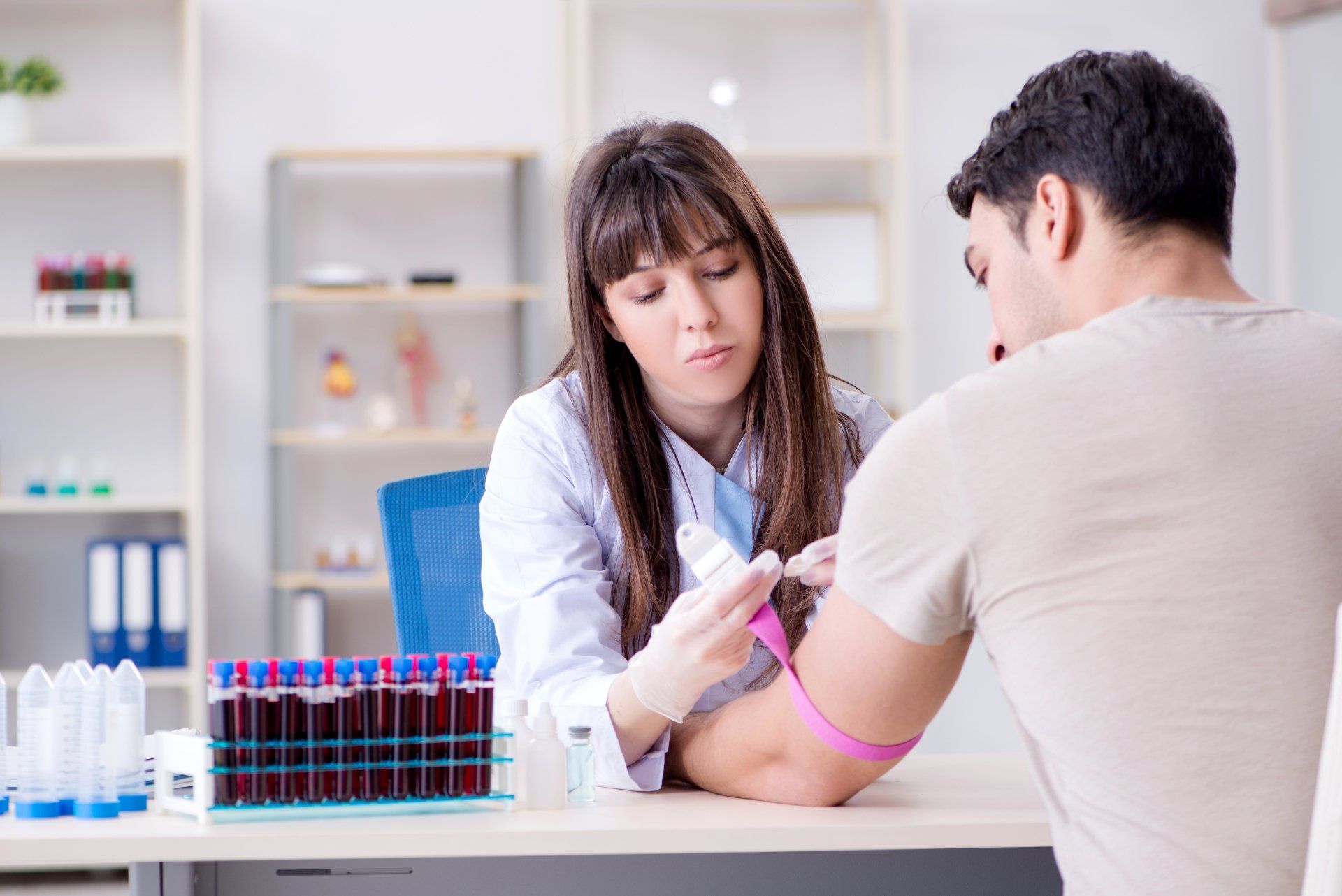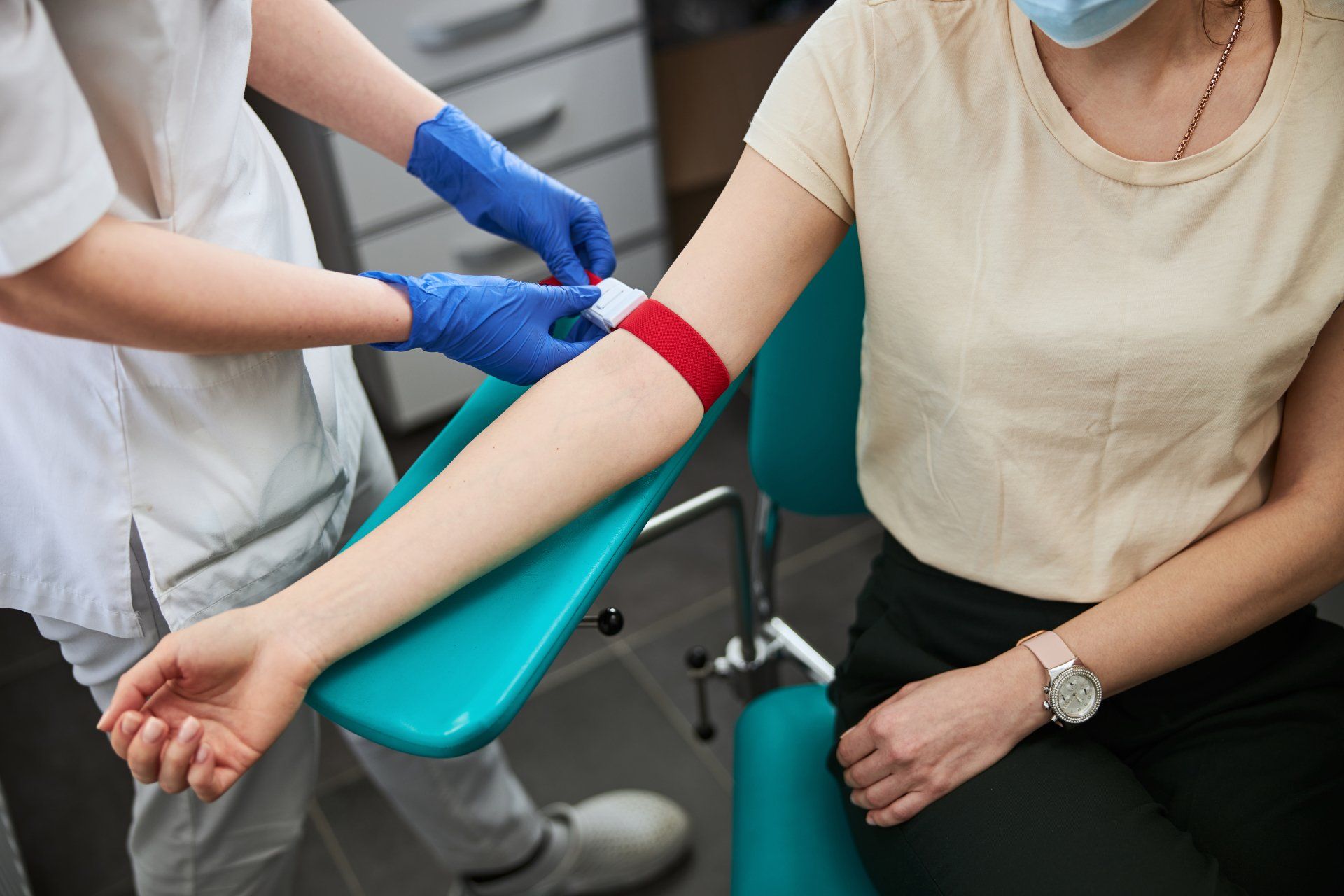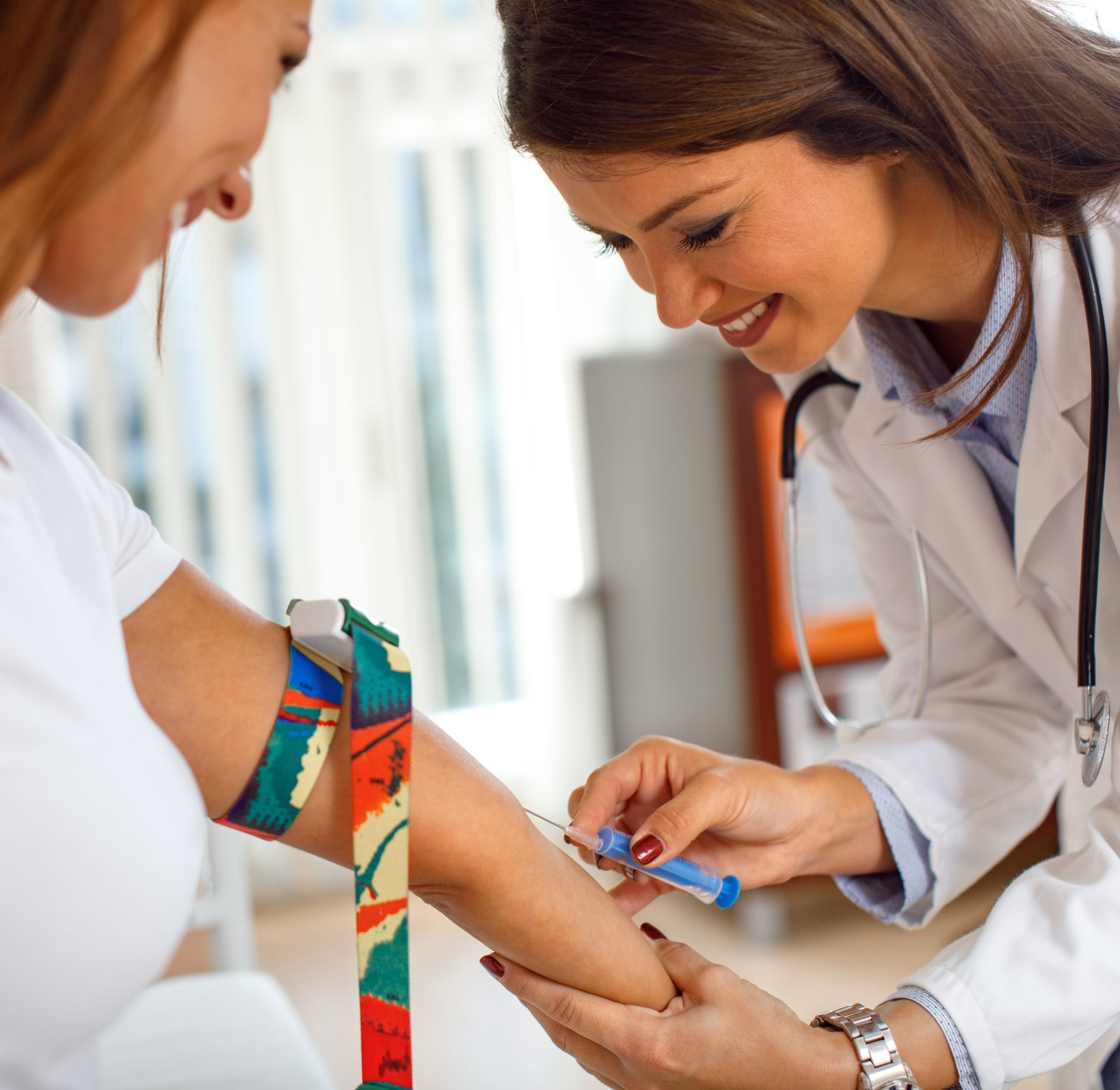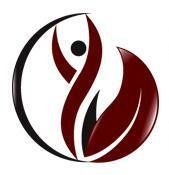PHLEBOTOMY/EKG
CONSUMER INFORMATION
More text here
More text here
More text here
More text here
More text here
More text here
More text here
More text here
More text here
More text here
More text here

Phlebotomy/EKG Technician Diploma Program
The Phlebotomy/EKG program will provide students with entry-level training that will prepare them for employment as a phlebotomist and EKG technician. This program consists of an overview of anatomy and physiology and point-of-care testing that separate enhanced skills such as taking a patient's vital signs, temperature, pulse, respirations, and blood pressures from specialized testing such as hematocrits, hemoglobin, blood pressure, coagulation studies, pregnancy testing and other point-of-care tests for more thorough coverage while emphasizing customer service. Individuals, under the supervision of physicians and nurses, are prepared to administer EKG and ECG diagnostic examinations and report results to the treatment team. Upon successful completion of this program, graduates will be eligible to take the NCCT certification examinations for Phlebotomy and EKG Technician.

Hours
The Phlebotomy/EKG Technician Program is offered both day and evening. Day classes are held Monday through Thursday between 9:00 am and 2:00 pm. Evening classes are held Monday through Thursday between 5:30 pm until 10:30 pm. Classes missed due to holidays or other scheduled cancellations are made up on assigned Fridays or by extending regular class hours. Clinical assignments may not coincide with normal school hours or days. This in-depth training is a combination of classroom, interactive lab, and externship.

Nature of Work
Phlebotomy technicians are an important part of the medical team. The primary job function of the phlebotomist is the collection of blood samples from patients. The phlebotomist is also responsible for preparing the samples to be tested by the medical laboratory. The need to assure proper collections, protection, labeling, and overall quality and patient safety requires the phlebotomy technician to always be professional and knowledgeable.
Working as a phlebotomy technician requires attention to detail, accuracy, and strong communication skills. As a phlebotomist, you will be responsible for explaining procedures to the patient as you perform them as well as keeping the patient calm during the process. Safety is always a priority. Phlebotomy technicians must be able to work efficiently without transmitting infectious diseases.
EKG (or ECG) technicians are responsible for administering electrocardiograph (ECG) tests which trace electrical impulses transmitted by the heart. Technicians attach electrodes to the patient’s chest, arms, and legs, and then manipulate switches on an ECG machine to obtain a reading. A printout is made for interpretation by the physician. This test is done before most kinds of surgery or as part of a routine physical examination, especially for persons who have reached middle age or who have a history of cardiovascular problems. More advanced skills for EKG technicians include administering Holter Monitor tests and stress tests. In addition, some EKG technicians schedule appointments, type doctors’ interpretations, maintain patient files, and care for equipment.

Job Outlook
According to the Bureau of Labor Statistics, employment is expected to grow for both phlebotomists (23%) and EKG technicians (10%) from 2018 to 2028. Hospitals, diagnostic laboratories, blood donor centers, and other medical facilities will need phlebotomists to perform bloodwork. While hospitals and cardiovascular physicians’ offices employ the majority of EKG technicians, employment in this field may also be found in doctors’ offices, outpatient clinics, and diagnostic laboratories.

Phlebotomy/EKG Technician Diploma Program
The Phlebotomy/EKG program will provide students with entry-level training that will prepare them for employment as a phlebotomist and EKG technician. This program consists of an overview of anatomy and physiology and point-of-care testing that separate enhanced skills such as taking a patient's vital signs, temperature, pulse, respirations, and blood pressures from specialized testing such as hematocrits, hemoglobin, blood pressure, coagulation studies, pregnancy testing and other point-of-care tests for more thorough coverage while emphasizing customer service. Individuals, under the supervision of physicians and nurses, are prepared to administer EKG and ECG diagnostic examinations and report results to the treatment team. Upon successful completion of this program, graduates will be eligible to take the NCCT certification examinations for Phlebotomy and EKG Technician.

Hours
The Phlebotomy/EKG Technician Program is offered both day and evening. Day classes are held Monday through Thursday between 9:00 am and 2:00 pm. Evening classes are held Monday through Thursday between 5:30 pm until 10:30 pm. Classes missed due to holidays or other scheduled cancellations are made up on assigned Fridays or by extending regular class hours. Clinical assignments may not coincide with normal school hours or days. This in-depth training is a combination of classroom, interactive lab, and externship.

Nature of Work
Phlebotomy technicians are an important part of the medical team. The primary job function of the phlebotomist is the collection of blood samples from patients. The phlebotomist is also responsible for preparing the samples to be tested by the medical laboratory. The need to assure proper collections, protection, labeling, and overall quality and patient safety requires the phlebotomy technician to always be professional and knowledgeable.
Working as a phlebotomy technician requires attention to detail, accuracy, and strong communication skills. As a phlebotomist, you will be responsible for explaining procedures to the patient as you perform them as well as keeping the patient calm during the process. Safety is always a priority. Phlebotomy technicians must be able to work efficiently without transmitting infectious diseases.
EKG (or ECG) technicians are responsible for administering electrocardiograph (ECG) tests which trace electrical impulses transmitted by the heart. Technicians attach electrodes to the patient’s chest, arms, and legs, and then manipulate switches on an ECG machine to obtain a reading. A printout is made for interpretation by the physician. This test is done before most kinds of surgery or as part of a routine physical examination, especially for persons who have reached middle age or who have a history of cardiovascular problems. More advanced skills for EKG technicians include administering Holter Monitor tests and stress tests. In addition, some EKG technicians schedule appointments, type doctors’ interpretations, maintain patient files, and care for equipment.

Job Outlook
According to the Bureau of Labor Statistics, employment is expected to grow for both phlebotomists (23%) and EKG technicians (10%) from 2018 to 2028. Hospitals, diagnostic laboratories, blood donor centers, and other medical facilities will need phlebotomists to perform bloodwork. While hospitals and cardiovascular physicians’ offices employ the majority of EKG technicians, employment in this field may also be found in doctors’ offices, outpatient clinics, and diagnostic laboratories.
Program Outline
| Course Number | Course Title | Credit Hours |
|---|---|---|
| PHLE101 | Medical Terminology | 3 |
| PHLE102 | Anatomy & Physiology | 4.5 |
| PHLE103 | Office Skills/Lab Tests | 3 |
| PHLE104 | Phlebotomy Technique | 3 |
| PHLE105 | Externship | 2 |
| PHLE106 | Certification Exam Review | 3 |
| EKG101 | Concepts in EKG | 3 |
| EKG102 | Lead EKG & Interpretation | 3 |
| Total | 24.5 |

